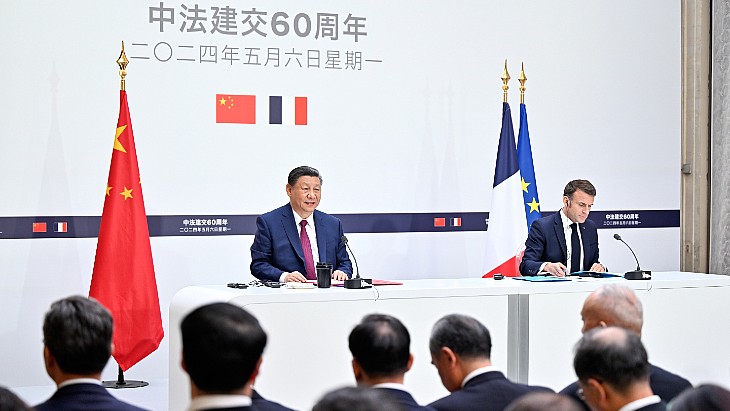Poland needs nuclear power, explains energy minister
.jpg)
Tchórzewski will make a keynote speech at World Nuclear Spotlight Poland, a World Nuclear Association event organised in collaboration with FORATOM and by the invitation of the Polish Ministry of Energy to be held in Warsaw on 20-21 November.
Poland produces most of its electricity from coal and imported gas, and Tchorzewski has warned that the country will not meet European Union carbon emissions reduction targets unless it revives plans to build a nuclear power plant. In 1990, coal-fired power plants accounted for 98% of electricity in Poland. Today its share is 80%.
In the magazine article, he wrote: "The climate policy of the European Union and the winter package compel further decrease of the percentage of coal in the energy mix amid the continuously growing demand for electricity. Against this background, we must answer the strategic question: What source of energy can provide us with a stable supply of electricity no matter the weather conditions and in keeping with the foundations of our energy security?"
Emissions
Poland's membership of the European Union and the global approach to climate protection have a “natural influence” on Polish coal-based energy generation, he wrote, and the winter package - which limits investing in high-emission energy sources due to Poland’s aging coal-fired power plants - "reduces room for manoeuvre" in choosing its energy strategy.
"In order to keep the coal-fired power plants, underpinning our energy security, in the energy production system, we must introduce a new energy source that will allow [us] to reduce the average CO2 pollution caused in the course of generation. Such a source that can be incorporated into our energy system without creating any emission-related costs is nuclear energy."
Renewable energy sources are as emission-free as nuclear power, he wrote, but depend on the weather.
"During this summer's heat wave in Poland, demand for electricity hit records. Extreme temperatures created a threat to security of local energy supply. Unfortunately, there was no wind, so the installed capacity in wind farms could not be used to remedy the situation. In July, wind farms provided a mere 4% of the energy consumed, and for many days the share was at the zero level. On average, only 14% of all the installed wind power capacity was used. At peak times, we put to work everything that was possible, and had to resort to large imports."
Renewables cannot be stored on a large scale, he noted, and must be used when they are produced. This means additional generation capacities must be installed as a reserve. However, a gas-fired power plant with a capacity of 1000 MW requires more than a billion cubic metres of gas each year.
"A gas power plant is cheaper to build, but its output is much more expensive than a nuclear one," he wrote. It is also vulnerable to external risks. "Nuclear fuel can be stored for over twn years, since one nuclear unit needs only two fuel trucks a year. By contrast, one coal unit requires about 200 coal wagons daily, and natural gas must be combusted nonstop," he added.
Nuclear
There are 23 nuclear power units within a 300km radius of Poland, he noted, including 14 in the Visegrád Group alone. The Visegrád Group, or V4, is a cultural and political alliance of four Central European states - the Czech Republic, Hungary, Poland and Slovakia, that are members of the European Union. Poland is the only V4 country that does not have nuclear power in its energy mix, he wrote.
"Hungary, the Czech Republic and Slovakia are expanding their production capacity in this area. The atom's renaissance is well on its way. There are 455 nuclear units worldwide, and 55 more are under construction. In the last couple of months, first reactors of the third/third+ generation were commissioned, with the rapidly developing Asian countries leading the charge. According to the International Energy Agency, it will be impossible to achieve any climate goals without further development of nuclear energy," he wrote.
"The odds of a major accident in the latest reactor of the third/third+ generation are less than 1:400,000,000, while the risk of a man struck by lightning is 1:3,000. Nuclear energy is stable and safe. In Poland, we are able to deal with radioactive waste, an example of which is the radioactive waste repository in Różan, which has been in safe service for over 50 years. The fact that no one died of radiation exposure in Fukushima failed to break through to public awareness," he added.
The Polish Energy Ministry has prepared an amendment to the Nuclear Energy Programme, which he said will be submitted to the Council of Ministers by the end of this year.
The full article is here: https://wszystkoconajwazniejsze.pl/krzysztof-tchorzewski-why-poland-needs-nuclear/









_66488.jpg)


